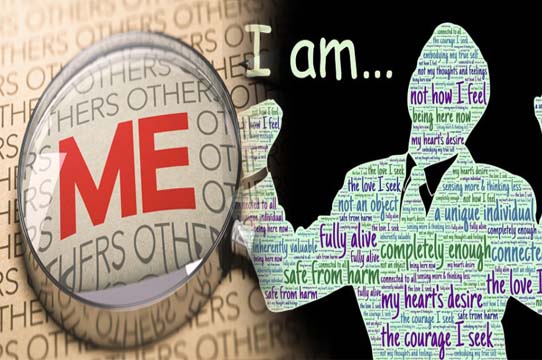In the realm of Carl Jung’s Jungian psychology, the concept of the shadow takes center stage, representing a profound and complex entity that encapsulates what the conscious personality deems negative among the archetypes.
Defining the Shadow in Psychology: An Intricate Web of Archetypes
At its core, the shadow serves as the repository of characteristics considered negative by the conscious personality. This hidden aspect emerges in dreams and fantasies, often portraying itself with traits similar to the ego but in a distinctly different configuration.
The Intricate Dance of Light and Dark: Role of the Shadow in Psychology
Depicted as the eternal adversary, akin to Mephistopheles in Goethe’s Faust, the shadow plays a complex role. It can be obscured, suppressed, or dismissed by the psyche, functioning as a potent complex in the unconscious, fueled by its energy.
The Mask of Persona: Veiling the Shadow’s Truths
Individuals adeptly conceal aspects of their shadow behind the mask of the persona, whether it be greed, selfishness, or aggression. Even when aware of these traits, individuals may suppress them, presenting a moral facade that shields their true nature.
The Varied Faces of Shadows: Cultural and Personal Influences
The shadow in psychology is not a one-size-fits-all entity; its composition varies based on familial, societal, and cultural influences. It encompasses both unpleasant and positive qualities, shaping a complex interplay of external guidelines.
Navigating Jung’s Psyche Model: Persona, Ego, and the Shadow
Jung’s model introduces a dynamic interplay of entities – persona, anima, animus, ego, and the elusive shadow. The persona relates to the outer world, while the anima/animus relates to the inner world. The ego, as the executive element, coexists with the shadow, collectively defining identity.
Carl Jung’s Profound Interest: Unveiling the Shadow’s Content and Form
Jung’s fascination lies in exploring the content and form of the shadow. The inability to confront and integrate the shadow’s aspects can underlie interpersonal issues, group conflicts, and global tensions.
From Personal to Collective: Layers of the Shadow in Jungian Psychology
Jung’s concept of the persona coexists with the often-neglected shadow, while the collective shadow lies beneath, influenced by cultural norms. It encompasses contradictions to conscious, shared ideals, presenting a complex interplay of societal influences.
Unmasking the Origin: How the Shadow Develops in Individuals
The shadow’s development begins in infancy, shaped by parents and caregivers. Deemed unacceptable traits are thrust into the unconscious, complicating the shadow’s composition with internalized societal attitudes.
Jung’s Dream Exploration: Facing Fear, Disgust, and the Unconscious
Jung’s encounter with his shadow, detailed in ‘Memories, Dreams, Reflections,’ reveals a dream grappling with a ‘brown savage’ named Siegfried. Emotions include fear, disgust, regret, remorse, compassion, sadness, and humility, emphasizing the shadow’s potency.
Acknowledging Shame: A Pervasive Fear in the Shadow’s Domain
Shame, a paralyzing fear, often goes unexplored. Jung experienced its effects, instilled by his mother’s disciplinary actions. Despite its impact, shame is overlooked in the works of Freud and Jung.
Leaving Behind a Legacy: Jung’s Unexplored Shadow Elements
Speculations abound that Jung left behind shadow elements, including anti-Semitism, negative connotations, unconventional spellings, and idealization of the East. His reluctance to institutionalize ‘Jungian’ ideas created breathing space for creativity.
Assimilation of the Shadow: A Journey Towards Self-Acceptance
Shadow integration, or assimilation, leads to self-acceptance and forgiveness. Grievances transform into responsibility, allowing individuals to establish personal ideals deviating from collective morality, and fostering a more complete self.
The Dark and the Light: Embracing the Potential in the Shadow
The shadow contains not only morally reprehensible tendencies but also positive qualities. Recognizing and acknowledging these traits enriches the personality, establishing connections with others.
Implications of Shadow Integration: A Collective Responsibility
Jung’s exploration extends to the realm of evil, intricately addressed in ‘Answer to Job.’ Manifestations of evil, both personal and collective, necessitate collective responsibility, guilt, and reparation. Understanding and confronting darker aspects become essential for societal growth.
Conclusion
In conclusion, the shadow in psychology emerges as a multifaceted entity. Navigating its intricacies, from personal to collective dimensions, becomes imperative for therapeutic interaction, individualization, and societal progress. Embracing the shadow unlocks the potential for self-discovery and collective evolution.
FAQs
- What is the significance of the shadow in Jungian psychology?
- The shadow holds profound importance as the repository of perceived negative traits, shaping one’s personality and influencing unconscious behavior.
- How does the shadow impact societal conflicts, according to Jung?
- Unacknowledged shadows fuel interpersonal and global tensions, fostering prejudice and conflicts; confronting shadows is essential for societal understanding and harmony.
- What role does shame play in the domain of the shadow?
- Shame, often unexplored, paralyzes in the shadow’s domain. Jung’s experiences, influenced by his mother’s discipline, underscored its pervasive impact.
- How did Jung’s personal experiences influence his exploration of the shadow?
- Jung’s dream encounters and his mother’s use of shame shaped his exploration of the shadow, reflecting personal struggles and insights.
- Why is the assimilation of the shadow considered a journey towards self-acceptance?
- Shadow assimilation leads to self-acceptance by transforming blame into responsibility. Embracing the shadow’s facets, both dark and light, fosters personal and collective growth.
Scars to Stars: Healing, Building Resilience, and Thriving in Life
Discover the journey from scars to stars. Learn about healing emotional scars, building resilience, and thriving in life….
Embrace Endings for Growth and New Beginnings
Discover how embracing endings can fuel personal growth and lead to exciting new beginnings. Learn to navigate life’s transitions with…
Unlocking Success with Aligned Action: A Comprehensive Guide
Explore the power of aligned action in achieving goals. Learn strategies to bridge the gap between desire and reality….
Unlocking the Power of Self-Understanding
Explore the journey of self-understanding and learn how to cultivate it with our comprehensive guide….
Unlocking Feminine Energy – A Comprehensive Guide
Explore the power of feminine energy and learn how to cultivate it with our comprehensive guide….
Self-Control: The Key to Balanced Emotions
Learn how self-control can help balance your emotions and lead to a more fulfilling life….






